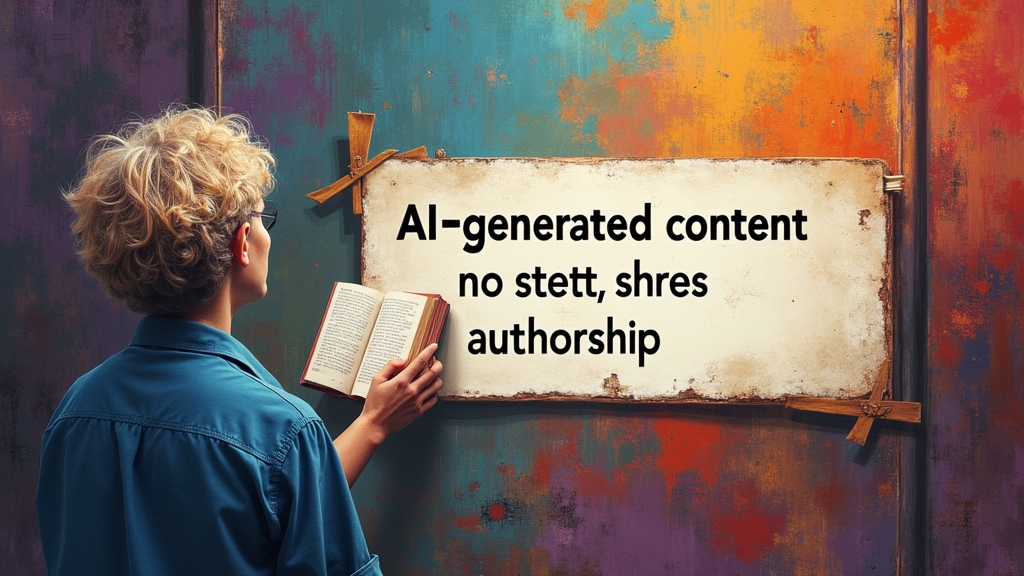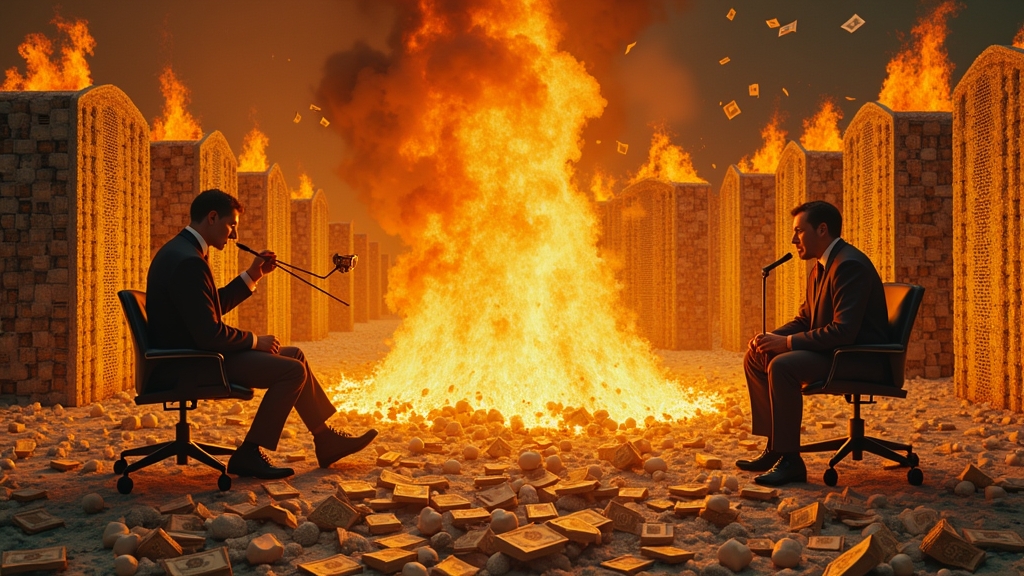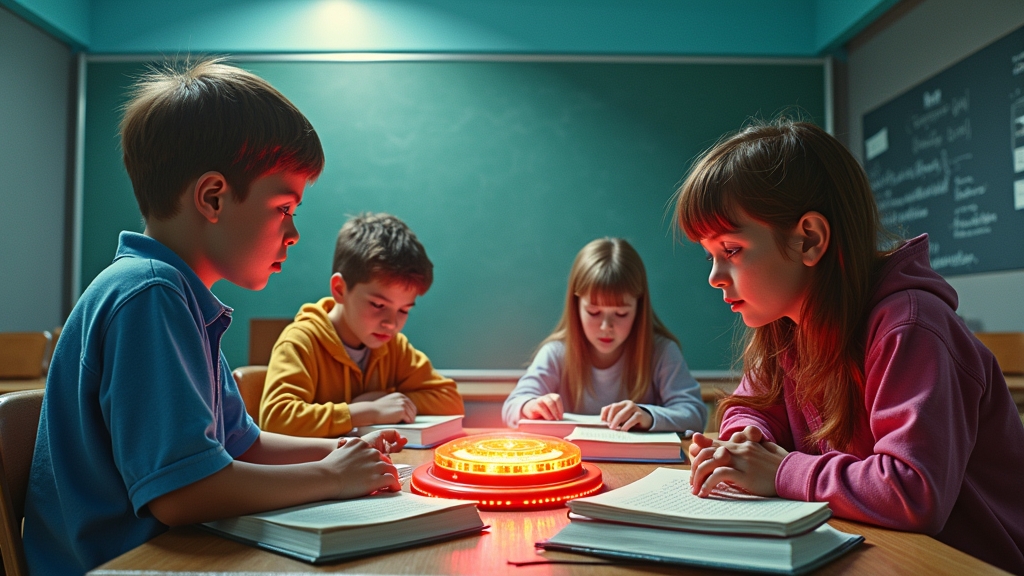**U.S. Copyright Office Declares That Typing Prompts Into AI is Not the Same as Writing A Damn Book**
In an absolutely shocking revelation that could rock the world of those who thought pressing “generate” was an act of divine artistic inspiration, the U.S. Copyright Office has now officially declared that AI-generated works do not magically qualify for copyright protection. Apparently, screaming increasingly detailed text prompts into a chatbot does not, in fact, make one the next Hemingway.
The 52-page report painstakingly outlines what should have been obvious to, well, anyone—if a human doesn’t bring actual creative input beyond “Make me a sci-fi novel but with dragons,” they can’t slap their name on it and call it their magnum opus. Despite what some might view as the intellectual equivalent of microwaving a frozen dinner and calling oneself a Michelin-star chef, copyright will still require meaningful human authorship.
“I was heartbroken,” lamented Derek Simmons, an aspiring “AI poet” who had been posting algorithmically generated haikus and attempting to sell them as collectible NFTs. “I thought real art was just about knowing which AI model to use! If this stands, I might actually have to, like… write something.”
The ruling, which preserves copyright protections for human creators who utilize AI as a tool (as opposed to an outright content vending machine), seeks to strike a balance between innovation and not letting people who merely typed “paint me a masterpiece” into an AI claim they are the new Picasso. Shockingly, providing a slightly more complex prompt does not create a legal loophole either. The Copyright Office insisted that even providing “detailed” prompts does little more than babysit a machine long enough for it to spit something flashy onto the screen.
“It’s sort of like trying to copyright a pizza just because you chose the toppings,” said an official from the Copyright Office who was already bracing for the complaints from Silicon Valley. “We respect the way AI is used in tandem with human creativity, but there is a difference between a chef and the guy who yells at Alexa to order takeout.”
Despite some protests from tech bros who see no reason why “Make this look cooler” shouldn’t constitute authorship, legal scholars overwhelmingly agree that copyright law has always revolved around human creation. The ruling simply reinforces what reality already knew: ChatGPT will not make you an award-winning novelist, Midjourney is not going to put you in the Louvre, and telling an AI to “make it better” does not suddenly imbue the final product with legally protected artistic genius.
For now, the Copyright Office has decided that no new laws are needed, a refreshing twist in a world where legislation often arrives five years too late and still manages to be outdated before it’s signed. Instead, the current policies will remain in place—ensuring that people who actually conceive, shape, and refine their work will still be the ones who own it.
“It’s devastating, truly,” sighed one AI influencer who had already announced their “book” of AI-generated wisdom only to discover copyright wouldn’t apply. “I guess I’ll just sell it as a ‘digital experience’ instead.”
And thus, the war between human creativity and exponential laziness rages on.





